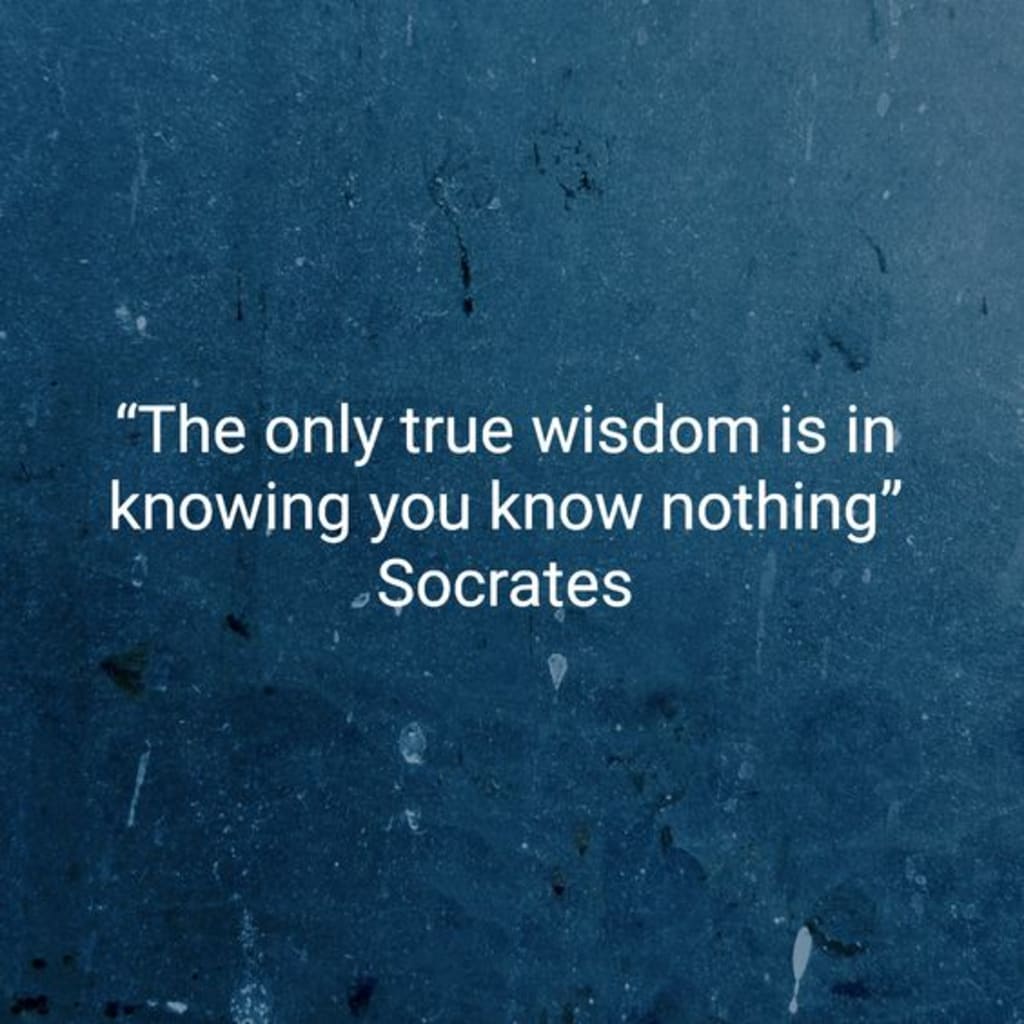Socrates and the Pursuit of Knowledge
The only thing I know is that I know nothing

Once upon a time, there was a wise and curious man named Socrates. He lived in ancient Greece, a long, long time ago. Socrates was a philosopher, which means he loved asking questions and seeking knowledge. He believed that the pursuit of wisdom was one of the most important things in life.
Socrates was known for his humble nature and his willingness to admit that he didn't have all the answers. One of his famous quotes was, "The only thing I know is that I know nothing." This may seem strange, but it was actually a way for Socrates to show his humility and his dedication to learning.
You see, Socrates realized that the more he learned, the more he understood how little he actually knew. He believed that true wisdom came from acknowledging one's intellectual limitations and always being open to learning more. So, instead of pretending to know everything, Socrates chose to embrace the idea that there is always more to discover.
Socrates wanted people to understand that it's okay not to have all the answers. In fact, it's even better to recognize our lack of knowledge because it motivates us to keep seeking knowledge and growing intellectually. He encouraged others to question things, to explore different perspectives, and to always strive for a deeper understanding of the world.
Socrates was a teacher who spent his time engaging in conversations with people, asking them thought-provoking questions to help them think critically and discover the truth for themselves. He believed that true knowledge was not something that could be taught but rather something that each person had to discover within themselves.
Another famous quote of Socrates was, "An unexamined life is not worth living." This means that Socrates believed it was important for people to reflect on their thoughts, actions, and beliefs. By examining our lives and questioning ourselves, we can lead more meaningful and fulfilling lives.
Socrates' ideas were quite revolutionary during his time, and they continue to inspire people today. His love for knowledge, humility, and dedication to questioning and seeking the truth have left a lasting impact on the world of philosophy.
So, my young friends, let Socrates be a reminder to you that it's okay not to have all the answers. Embrace the joy of learning, keep asking questions, and never stop exploring. And remember, sometimes the wisest thing we can say is, "I don't know, but I'm eager to find out!"
Here his other famous quotes:
- "An unexamined life is not worth living." This means that it's important to think about our lives and question why we do things. By examining our choices, we can make sure we're living a meaningful and fulfilling life.
2."Know thyself." Socrates believed that it was essential to understand ourselves and our own thoughts. By knowing ourselves well, we can make better choices and live happier lives.
3."Wisdom begins in wonder." Socrates believed that being curious and wondering about the world around us is the starting point for gaining wisdom and knowledge.
Socrates' life purpose was primarily focused on the pursuit of wisdom, self-examination, and the betterment of individuals and society. He believed that the ultimate goal of human life was to seek knowledge, understand oneself, and live a virtuous existence.
Socrates dedicated his life to engaging in philosophical discussions, challenging people's beliefs, and encouraging critical thinking. He believed that by questioning and examining our own thoughts and actions, we could discover the truth and improve ourselves morally and intellectually.
One of Socrates' key teachings was the concept of the examined life. He argued that it was essential for individuals to reflect upon their lives, question their choices, and understand the reasons behind their actions. Socrates believed that by examining our lives, we could uncover wisdom and lead more fulfilling and purposeful lives.
Furthermore, Socrates saw himself as a gadfly, similar to a small insect that irritates a horse to make it more alert and aware. He considered his role as a philosopher to be a "gadfly" to society, constantly challenging people's beliefs and ideas in order to stimulate critical thinking and promote intellectual growth.
Socrates also believed in the importance of moral virtue and justice. He emphasized that living a virtuous life was essential for individual happiness and the well-being of society as a whole. He sought to inspire others to question conventional notions of morality and develop a strong sense of personal integrity.
Overall, Socrates' life purpose revolved around the pursuit of wisdom, self-examination, and moral virtue. He aimed to guide individuals toward self-improvement, encourage critical thinking, and contribute to the betterment of society through philosophical inquiry and dialogue.
About the Creator
Sumeyra Mammadova
Passionate writer, thinker who believes in the power of words to inspire, educate, and create change. I aim to share my unique perspective on life.






Comments
There are no comments for this story
Be the first to respond and start the conversation.